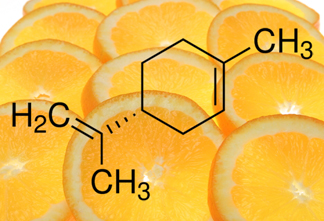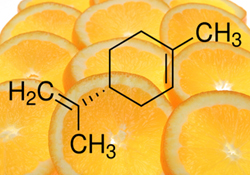I’m not meaning to drag you through a class in organic chemistry, but this is important. A word you will be hearing more and more of in the future of medical cannabis is terpenes. I’m going to keep it really simple, so don’t skip this.
The part of a plant that makes up it’s aroma is the plant’s life blood, and is called the Essential Oils. The part of the cannabis plant in particular, that gives every strain it’s unique odor and flavor are essential oil constituents called terpenes. There are many types of terpenes, but I’m going to keep it pertinent to cannabis for now. These naturally occurring chemicals combined with a plant’s other components, (ie cannabinoids), give each cannabis strain it’s own unique properties and effects, as well as aroma. I believe that terpenes contribute to the medicinal value of the plant as well. Let me explain why.
Back in 2003, I became a Certified Aromatherapist. Aromatherapists treat many ailments with Essential Oils. I’m not much of a practicing Aromatherapist anymore, but I got a great education and I had no idea at the time that this would aid me 10 years later in my medical cannabis research, but it has been extremely helpful. The school that certified me, The Pacific Institute of Aromatherapy, and it’s founder, Dr. Kurt Schnabault, are considered by Aromatherapists worldwide to be cutting edge in research and education of Essential Oils. Schnabault is first and foremost a chemist, but also a researcher and educator, and I choose his school because I was looking for real science, not any new age hokey-pokey (that really turns me off). Dr. Schnabault is a German Chemist, so I figured there would be no nonsense there and I was right. Aromatherapy utilizes essential oils, to heal. It’s not New Age, and it’s not even new. Aromatherapy is considered by some to be the mother of organic chemistry, but that is another topic altogether that I’m going to skip for now. By the way – Glade Plug-Ins are NOT Aromatherapy. Just thought I should clear that up.
 We all experience essential oils in our everyday lives. My favorite example of an essential oil is that spray that comes off an orange or tangerine when you peel it. Just fold over and squeeze a lemon peel. That spray is 100% essential oil, and it has many practical purposes. That citrus odor? It’s limonene, a terpene, (also found in cannabis, by the way). All of the citrus essential oils have similar characteristics, effects and purposes as well as a commonly recognized aroma. They’re the same, but different.
We all experience essential oils in our everyday lives. My favorite example of an essential oil is that spray that comes off an orange or tangerine when you peel it. Just fold over and squeeze a lemon peel. That spray is 100% essential oil, and it has many practical purposes. That citrus odor? It’s limonene, a terpene, (also found in cannabis, by the way). All of the citrus essential oils have similar characteristics, effects and purposes as well as a commonly recognized aroma. They’re the same, but different.
My next example is the scent of rose. Pure, natural rose essential oil is very, very expensive because it is difficult and expensive to extract, but it’s one of few naturally occurring substances on this planet that actively promote skin cell growth. Other essential oils, such as Rosewood and Palmarosa come from completely different none-rose plants, but also carry the rose scent and are also useful for skin ailments and all of them are antidepressants. Once again my point is they all have a similar rose aroma and similar health benefits. It’s all about the terpenes.
This illustrates that the aroma, or terpenes in cannabis act in a similar way. Cannabis plants with the same aroma have similar properties because they share similar organic breakdowns. If you use a cannabis strain that smells and tastes of lemons or pine and it is successful as a medicine, it’s probable that other strains with similar taste and aroma will perform similarly.
Similar aromas – similar characteristics – similar results. But terpenes are not just about the smell. They have their own medicinal properties and with cannabis, as with all healing plants, the symbiotic relationship of all the constituents of the plant can’t be ignored.
In the next post, the medicinal properties of terpenes will really astound you! It’s very odd that Big Pharma has decided to pull the good out of a plant, synthesize it and then make a pill, leaving behind such an important part of the medicine.

[…] heal our body, regulate imbalances, reduce inflammation and to block pain. They are aided by the terpenes, (fragrant carbon molecules found in just about any plants that have an aroma), that are present in […]
[…] my posts about terpenes, I spoke about some of the flavor nuances that different terpenes bestow on cannabis, and how […]